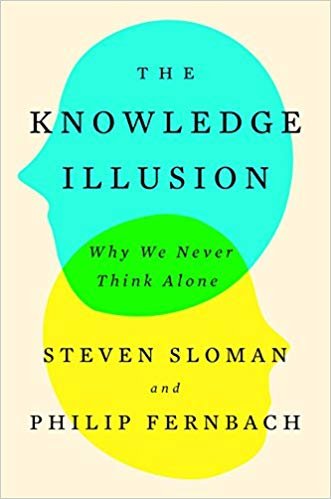We live in a community of knowledge, and unfortunately communities sometimes get the science wrong. Attempts to foster science literacy cannot be effective if they don’t either change the consensus of the community or associate the learner to a different community.
People tend to have limited understanding of complex issues and they have trouble absorbing complex details (like answering factual answers to factual questions). They also tend not to have a good sense of how much they know and they lean heavily on their community of knowledge as a basis for their beliefs. The outcome is passionate, polarized attitudes that are hard to change.
…shattering people’s understanding by asking them to generate a detailed causal explanation also makes them less extreme.
From The Knowledge Illusion: Why We Never Think Alone by Steven Sloman (Author) & Philip Fernbach
Riverhead Books (March 14, 2017)


